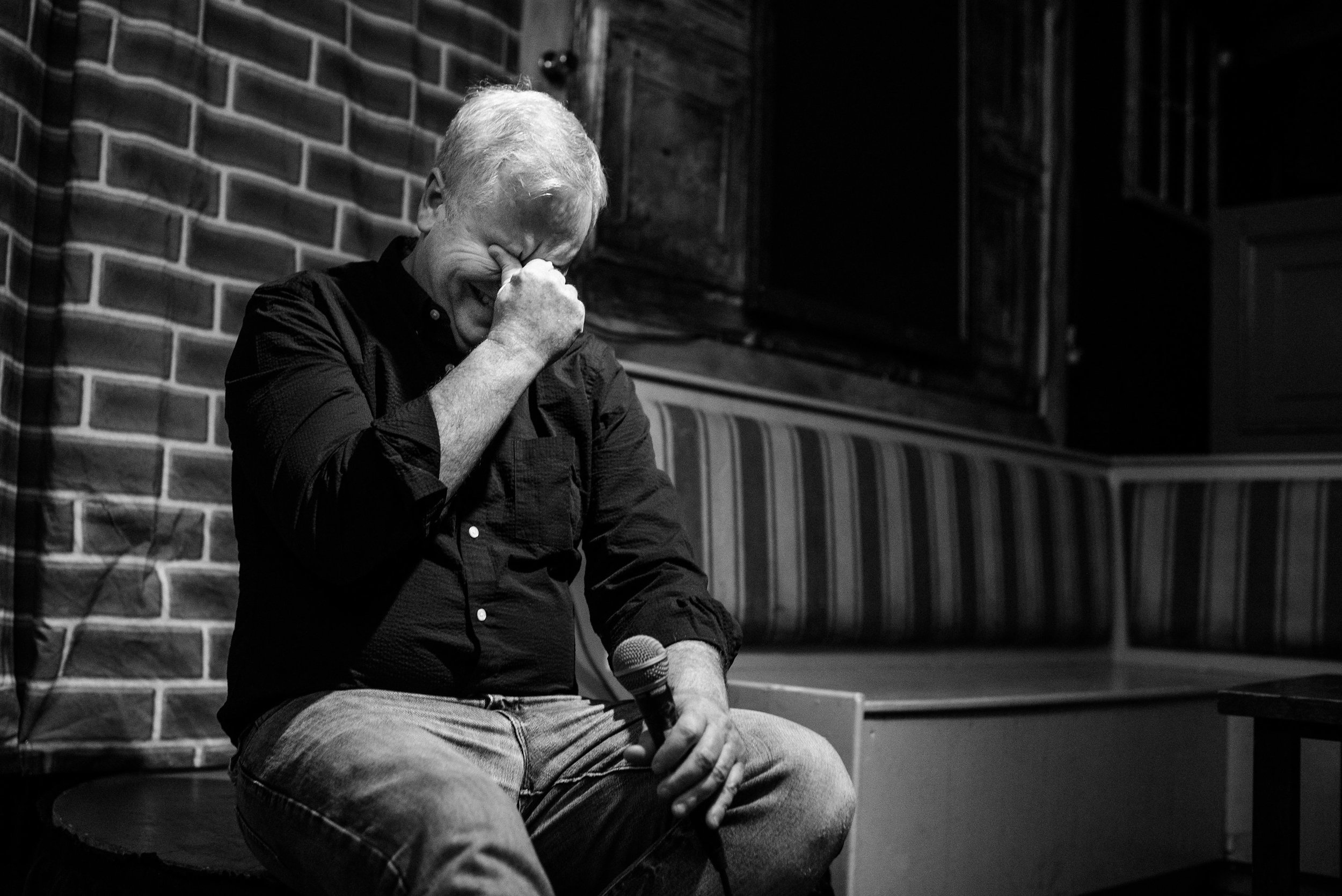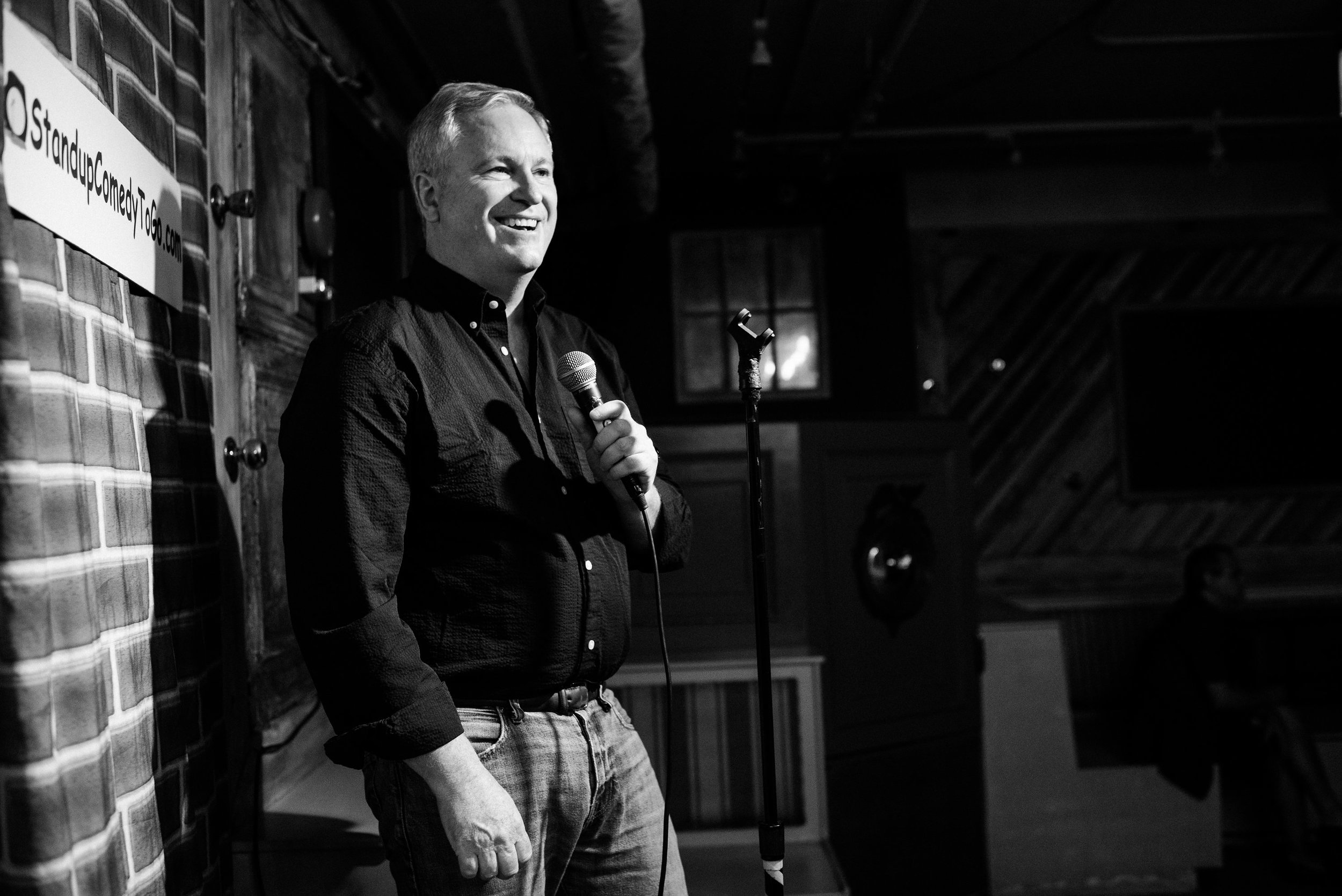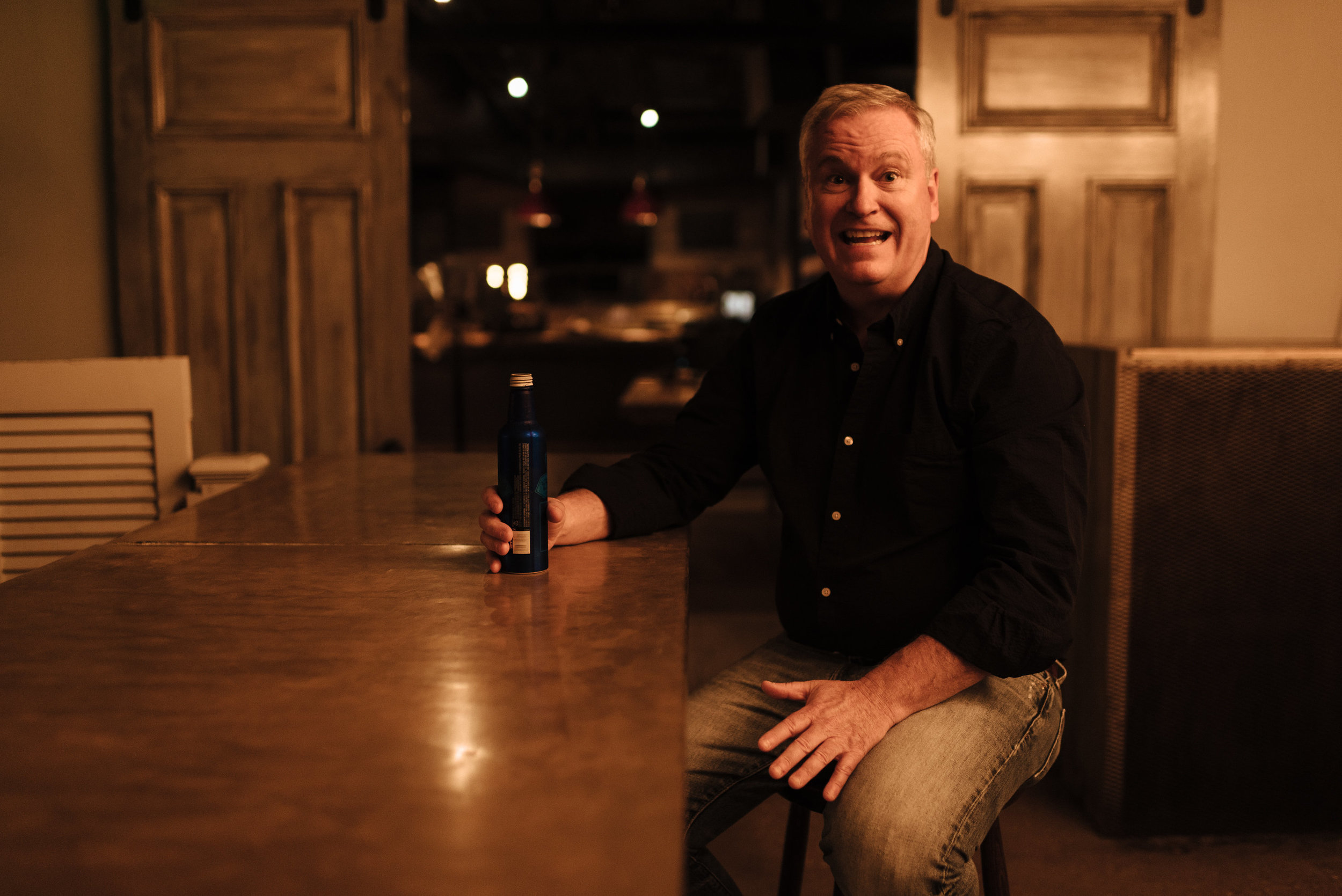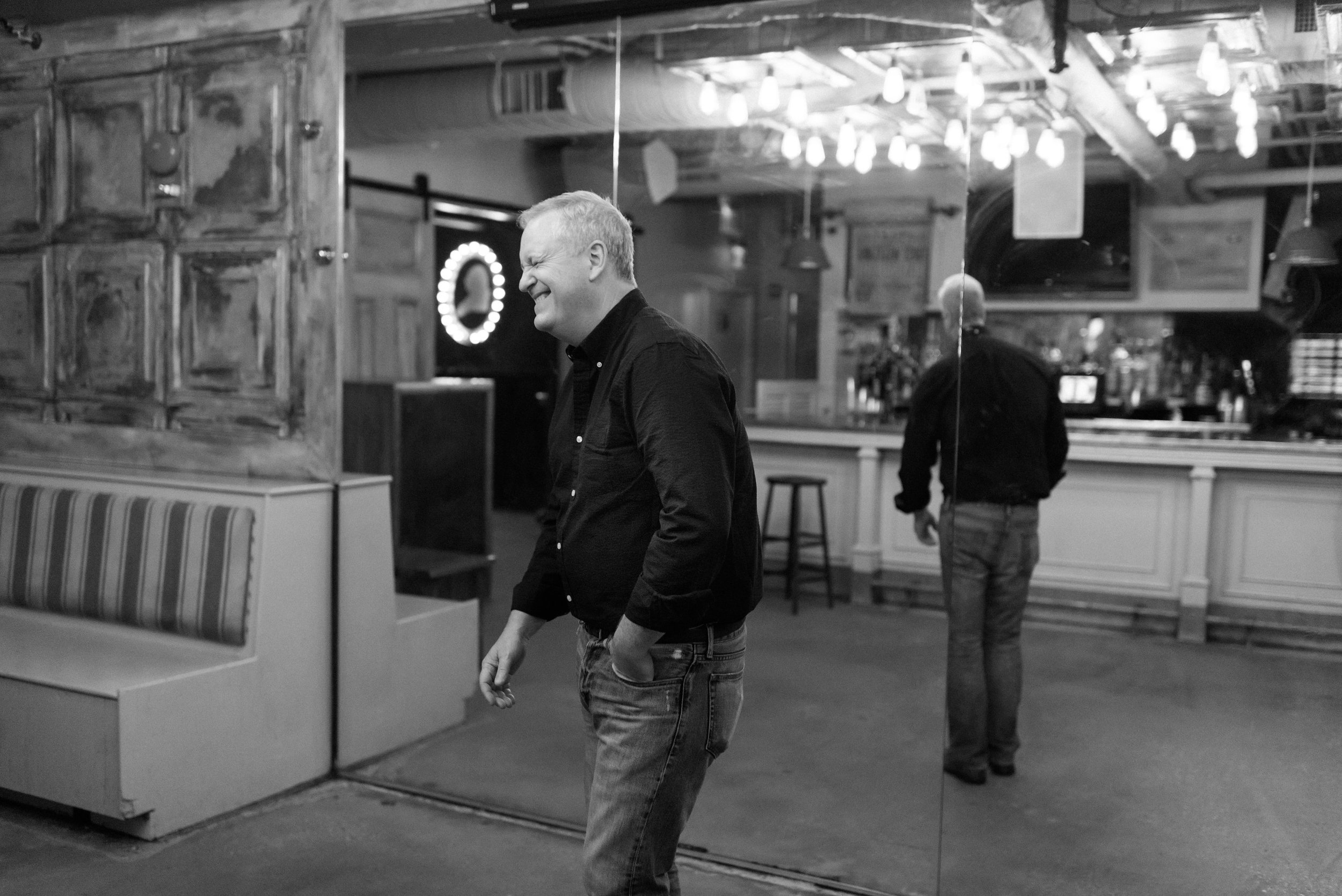‘I’m a Wreck All Day Before a Show’
George Peacock has trouble at dinner parties.
‘I’m being myself and telling a funny story, and suddenly everyone’s in stitches—and then someone breaks that and says, ‘Ohhhh, you’re doing a bit.’ It’s not a bit! How could I have written something for the thing we were just talking about?’
Welcome to the life of a stand-up comedian.
A life of chance—and luck—for George. In 2003, DC Improv started hosting open mic nights—nine comedians each performing for nine minutes in front of a panel of judges. The winner opened for a headliner for a week.
A few months in to the open mic series, George was in the audience.
‘I’d never done stand up and I wanted to see the level of comedy. I was watching with a friend and I said, ‘I think I can do that.’ When we were leaving, I bumped into a guy named Matt Kazam who used to work with me and quit 10 years earlier to go into stand-up. He called DC Improv manager, John X, over and told him I wanted to give stand-up a try. John X asked if I was funny and Matt said, ‘He was when I worked with him.’ John X said he’d put me on in two months.’
With zero experience, George spent the next eight weeks buying stand-up books and writing a nine-minute set. He came in second place, but won the ultimate break. A Georgetown graduate, George was invited to open for fellow Hoya Jim Gaffigan.
‘My second set ever was a week with Jim. And then Mike Birbiglia was coming in the Fall, and he was another Georgetown guy, so they let me open for him, too. Then Jim came back and I did another week. And then I did a week with my hero, Brian Regan.’
For the record, this kind of thing never happens.
‘Very quickly I’d opened for all of these guys in quick succession, and suddenly my son was like, ‘When do I get to meet Eddie Izzard, when do I get to meet Jerry Seinfeld?’ I’m like no, it doesn’t work this way! This is all luck.’
Luck, perhaps—but George had quickly proven himself as a reliable opener. When Brian Regan was performing at Warner Theater in 2005, George emailed him to try and get tickets to the sold-out show. Brian had a better offer.
‘He said, ‘But do you want to open?’ This was Thursday, and the show was on Saturday. I took off of work for the next two days to curate all of my material down to 10 minutes. My son Duncan was in fifth grade at the time and I told him I got tickets for him and his friends, but I had to work that night so I couldn’t go. The first time he even knew I was there was then they said, ‘Ladies and gentleman…’ And as I’m walking on stage with that lone mic at Warner Theater, the only thing I’m thinking is…I wonder what Duncan is thinking. It was like being at fantasy baseball camp.’
And then George walked away from it all. Divorce and work forced the stand-up to do a literal mic drop—one that lasted a decade.
Last summer, George asked himself what he wanted to do next. The answer was still stand-up. He called Curt Shackelford, a friend who started producing local comedy shows in the early 2000s, and had most recently begun a series of free, Friday night shows at Georgetown’s Chinese Disco.
‘I said I want to try again and Curt said, ‘You’re old—but come on down.’’
For the past year, the father of four and finance guy by day has been a regular at the Chinese Disco shows—held in a basement bar next to Café Milano. On a good night, George performs for a diverse crowd of 60. On a bad night, an audience of four.
‘It was the same night as Olympic swimming and I don’t know if I was bombing, but it was the most awkward eight minutes of my life. There’s nothing to feed off of. If you say something that’s meant to be funny, even if they think it’s funny, it’s awkward for them to laugh. And equally awkward not to laugh.’
Four or 400, George says he’s a wreck before every show—sitting in front of his computer printing out 10 versions of what he wants to say, every single word scripted. Sometimes he can’t even be in the room beforehand.
‘But it’s always worth it. Even that night when there were four people, I thought, it’s not what I would have scripted, but it’s just one more story, or one more experience.’
George is once again pursuing what he loves, but it’s hard to ignore the elephant in the room. He went from performing for sold-out crowds at Warner Theater to a few dozen at Chinese Disco.
‘I do feel like I’m paying dues that I never paid. I have two friends who’d moved out to L.A. and were there for four or five years just trying to get three minutes in a showcase, and I was doing 10 minutes for Jim Gaffigan. Anyone can go out in front of 300 people, and if they have anything somewhat funny, they’ll land a few—and they’ll get that dopamine that carries you through. But now if I can get a small crowd to laugh at all—it means a large crowd will laugh a lot. It’s exponential. And it’s a rush, every time.’
Taking stories that are true ‘and just playing with them a little,’ George has bits on games color-blind dogs must play (grey rover, grey rover) to God dealing with succession planning for his hippy son.
‘To my detriment, I’ve never yet done any comedy about the guy at work or any of my relationships,’ says George, whose currently working on an hour-long show. ‘I’ve been on Match.com for like four years and women are always like, ‘Oh my God, you’re not gonna joke about this date, are you?’’
In life and on stage, George is learning to lean into the failures.
‘The thing with the stage is that everyone’s fear is something will go wrong. And then once you’re on stage, it does go wrong. It goes wrong all the time. And you realize it’s ephemeral—unless you want to cling to it forever—and it does go wrong. And it’s okay.’
At least it’s a good story.







